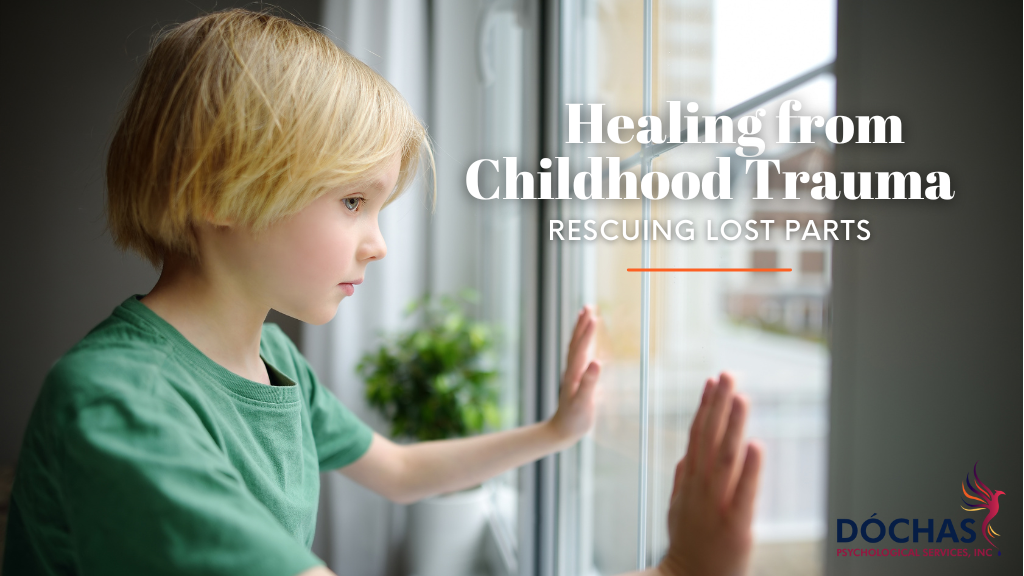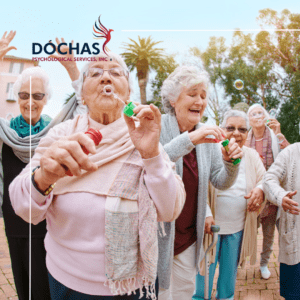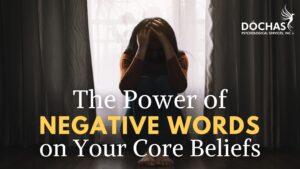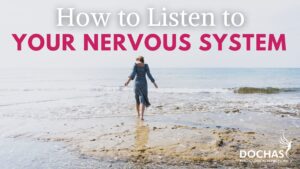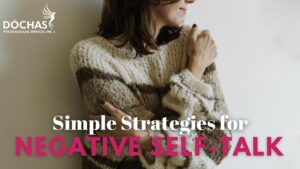Hello! It’s Justine on the blog today! I’m going to dive into the topic of healing from childhood trauma.
Have you ever noticed that sometimes you have really strong reactions to things and find yourself wondering why you got so upset afterwards? For example, you make a minor mistake and later realize that you were being super hard on yourself, or maybe a lighthearted comment a friend made really stung, and you find yourself confused about how much it impacted you emotionally. From an emotion-focused therapy perspective, these moments be a result of a younger part of you showing up that was left behind in previous traumatic experiences. A strong physical or emotional reaction to making a minor mistake at work, for example, might trigger the fear you experienced when you weren’t able to freely make mistakes without being criticized as a younger person.
So why am I still experiencing intense feelings or physical reactions to things I went through as a child or even years ago? Isn’t the past, the past? While there are many factors that can influence our physical and emotional reactions to our environment, the intense reaction you experience was likely unable to be expressed and processed in a healthy way at the time that it occurred.
When we think about childhood trauma, we often think about things like sexual or physical abuse, which clearly impact adult life. But there are other forms of childhood trauma that are less obvious. Some examples are: neglect, the loss of a parent, a serious childhood illness, a learning disability that left you doubting yourself, too many siblings, a detached, emotionally unavailable, or anxious parent, even your parent’s own childhood trauma. (source)
You might feel that your trauma is ‘in the past,’ but it can actually continue to affect the present. “Traumatizing experiences in childhood can’t be laid to rest until the ways they live on in your current experiences, symptoms, and relationships are deeply understood,” explains this article on childhood trauma.
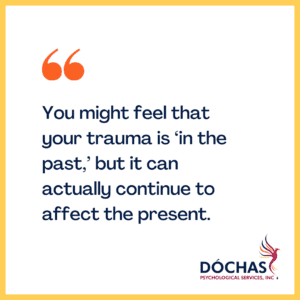
If you’ve experienced childhood trauma, or trauma at a previous time in your life that you were unable to adequately process and heal from (no, it doesn’t always stem from childhood), here are some ways that you can begin to process and heal from these experiences.
Acknowledge the reaction and its triggers
When you experience strong physical or emotional reactions to things, pay attention to what you feel in your body and your emotions. Ask yourself: when is an earlier time I remember feeling this way? For example, if you notice that you feel a ton of anger or embarrassment over making a minor mistake at work, acknowledge your body’s response and your emotions in the moment. Are these feelings similar to an earlier time when you were criticized for making a mistake that left you feeling belittled or unsafe? To put it simply, we need to learn to acknowledge and sit with difficult feelings in order to begin to process them.
Take it slow and practice self-care
Acknowledging these emotions and physical reactions can be incredibly painful and scary, as bringing awareness to an earlier traumatic experience can feel like you’re re-living it. Don’t be discouraged if you find this exercise difficult. Practice self-care and grounding techniques such as breathing exercises, meditation, guided imagery, or exercise. If you need some tips on overcoming anxiety, we have a previous blog about that.
Recognize and reclaim authority through self-validation
Allowing yourself to acknowledge and heal means that you can also accept the shame, guilt, fear, or other emotions felt by your younger self without criticizing yourself for experiencing these things. As Zarafshan Shiraz explains, “Childhood trauma victims often act as if the event never happened or blame themselves, which can lead to guilt and self-blame. Accepting that a trauma happened and you weren’t responsible is necessary to heal. Because of the sentiments of helplessness that you felt as a child, it is possible to carry those feelings into adulthood and make decisions based on those experiences” (source).
Love the child inside you
Relive the experience you’re recovering from and imagine that a younger you is meeting your adult self in the present. Talk, hug and wipe away the tears to comfort your inner child. If the child is scared, try to calm them down. Give that child the solace it needs. Be the kind of adult that the child didn’t have when they were younger. This can also be a difficult and painful experience, often because the repressed part of you may not trust that it is safe to trust kindness or generosity. If you struggle with this, refer back to the above-mentioned steps or consider connecting with a therapist to help you overcome these difficult feelings. A book I often recommend on how to heal childhood trauma is called The Inner Child Workbook, and it might be helpful to check out.
Consider therapy
Consider therapy if you find that you struggle to sit with uncomfortable feelings or notice that you keep experiencing repeated reactions to previous traumatic experiences. A professional can offer you a helping hand to guide you through these experiences. You don’t have to stay “stuck” in these past experiences.
If you realize there’s some healing from childhood trauma you need to do, I hope these suggestions give you a place to start! And we at Dóchas are here to help. If you’d like to talk to one of us, reach out to us at 780 446 0300 or drop us a line at info@dochaspsych.com.
Resources:
Steps to healing childhood trauma as an adult
How To Recognize If Your Childhood Trauma Is Affecting You As An Adult (& How To Heal)
About Dóchas Psychological
Dóchas Psychological Services is a well-established and trusted therapy clinic located in Spruce Grove, Alberta. At Dóchas we value the idea that everyone deserves a safe space. Through connection and education, our team works hard to build a trustworthy relationship with each of our clients. It is our goal to create a community for our clients to feel like they belong.
Disclaimer
Information provided through Dóchas Psychological Services blogs or vlogs is meant for educational purposes only. They are NOT medical or mental health advice. You can read more about our disclaimer here.

